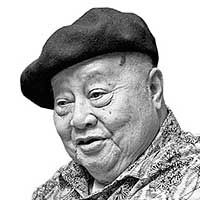Nation and culture

On this, the 150th anniversary of the birth of our National Hero, Jose Rizal, his life and work are worth remembering for so many of the problems which he exposed in his time are still very much with us.
Where have we failed? Why has our country which was the leading nation in Southeast Asia in the ‘50s and ‘60s been left behind? The American writer James Fallows postulated some 20 years ago that this has happened because our culture is “damaged.” His statement has since then become the object of much argument and speculation.
Now the most often asked question about us is this: what is wrong with us? This is asked because we all know that the fault lines are not in the stars but in ourselves. Could it really be true that our culture is damaged? Who are the people who created this culture? And who are those who damaged it? Have we failed because there is not enough sense of nation, of patriotism among our leaders? Because our minds are colonized? Yet we also know that we are not only a very talented people but as our history has so correctly told us, we are a heroic people with a revolutionary tradition. Why then is there so much corruption in the country? Why do we send millions of our people to work abroad when we have everything working for us — natural resources, the proliferation of skilled and talented people, and so many professed patriots among us?
Eventually, it is hoped that a mass and state-supported cultural agenda will bring economic benefits not just to the cultural workers but to the country as a whole. Filipino art promoted by domestic support has already been introduced in the international market. Cultural products, fashion fabrics, motion pictures, books and other artifacts will find their niche in the markets of the world. The envisioned Bahay Rizal as a Philippine cultural center — with private and public support — will hopefully be established in major cities abroad. Such pursuits will nurture the Filipino spirit without which modernization cannot prosper.
Four major issues are involved in this cultural renewal.
Arts and culture: What is the function of the arts in the formation of identity, in unifying a people and imparting to them a sense of nation, ethics and justice?
Culture and society: How may the awareness of social attitudes and cultural values be developed further and encouraged and how, in a larger sense, will the work of cultural workers be institutionalized and supported by the people? For instance, if people can spend for cigarettes, beer and cockfighting, how may some of that money be channeled towards cultural development?
Media/education and the new communication technologies: How may media promote an ethical and just society whose culture — both social and artistic — is part of their environment, embedded in their very lives as craftsmanship, as habit? How do the social media affect society? How may the new communication technologies elevate cultural, political sensibility, improve literacy, thinking, social responsibility, sense of nation?
Culture and the state: How will the state assist in cultural development, through education, a viable cultural program recognizing diversity? As in France, does the Philippines need a Ministry of Culture? There is so much anarchy in beautification, in the naming of streets, the placing of public monuments — how will these be standardized, regulated? How may towns, cities, on their own — enhance cultural awareness through museums, festivals, the writing of local histories?
All these issues will be discussed and will be formulated into a national agenda by a select group of philanthropists, art patrons, and cultural workers, writers and artists from the private and public sectors on Dec. 3 at the Cultural Center of the Philippines. The conference sponsored by Solidaridad will be chaired by Senator Edgardo J. Angara who, among our political leaders, is the leading advocate of cultural development.



















